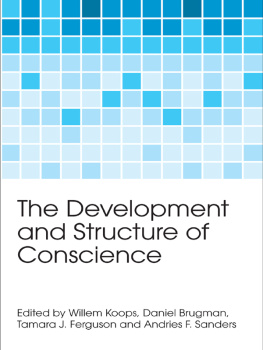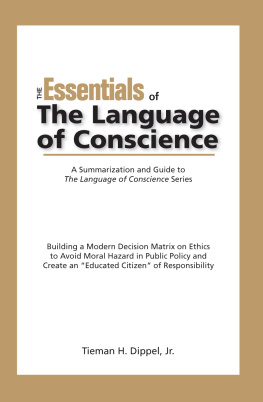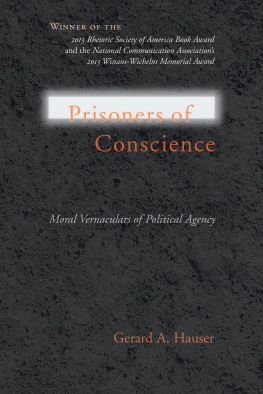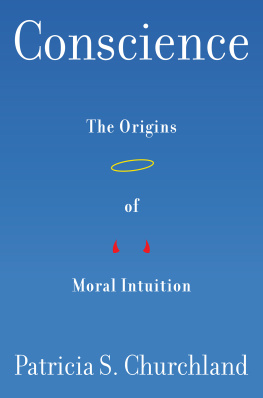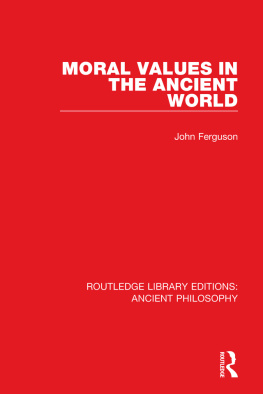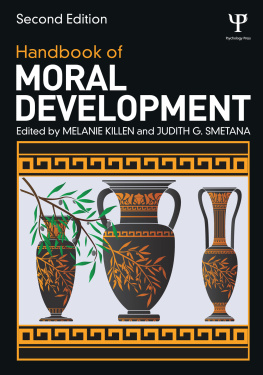The Development and Structure of Conscience
This book focuses on the structure and development of conscience, a subject that has been dominant in developmental psychology since the 18th century. International experts in the field contribute to this broad overview of the relevant research on the development of moral emotions and on the Kohlbergian-originated cognitive aspects of moral development.
The first section of the book focuses on the cultural conditions that create the context for the development of conscience, such as moral philosophy, religion, and media violence. Building on the theory and research on emotion, other chapters cover issues including the development of shame, self-regulation and moral conduct, social cognition, and models of guilt. The book also covers moral reasoning, identity, atmosphere, and behaviour, and discusses subjects such as lying, how to measure moral development, and issues surrounding gender and aggression.
The Development and Structure of Conscience will be ideal reading for researchers and students of developmental and educational psychology.
Willem Koops is Distinguished Professor of Developmental Psychology at Utrecht University. He has taught at the VU University Amsterdam, the University of Michigan, and several other universities in the USA, Japan, and Indonesia.
Daniel Brugman is Professor of Developmental Psychology: Aspects of Intervention in Youth Care at Utrecht University. His research interests include the effectiveness of programmes to stimulate moral development in children and adolescents and on the relations between moral cognitions and antisocial behaviour.
Tamara J. Ferguson is Professor of Psychology in the Department of Developmental Psychology at Utah State University. Her research interests include the role of emotion in managing ones identity and the impact of such emotion on social relationships and behaviours.
Andries F. Sanders is Emeritus Professor of Experimental Psychology and Ergonomics at the VU University Amsterdam and at the RWTH in Aachen, Germany. He was Managing Editor-in-Chief of Acta Psychologica from 1976 until 1990 and is a member of the Royal Netherlands Academy of Arts and Sciences.
The Development and Structure of Conscience
Edited by Willem Koops, Daniel Brugman, Tamara J. Ferguson, and Andries F. Sanders
The editors would like to thank the Van der Gaag Foundation for their support of this book
Published in 2010
by Psychology Press
27 Church Road, Hove, East Sussex BN3 2FA
Simultaneously published in the USA and Canada
by Psychology Press
270 Madison Avenue, New York, NY 10016
www.psypress.com
This edition published in the Taylor & Francis e-Library, 2009.
To purchase your own copy of this or any of Taylor & Francis or Routledges collection of thousands of eBooks please go to www.eBookstore.tandf.co.uk.
Psychology Press is an imprint of the Taylor & Francis Group, an Informa business
Copyright 2010 Psychology Press
All rights reserved. No part of this book may be reprinted or reproduced or utilized in any form or by any electronic, mechanical, or other means, now known or hereafter invented, including photocopying and recording, or in any information storage or retrieval system, without permission in writing from the publishers.
This publication has been produced with paper manufactured to strict environmental standards and with pulp derived from sustainable forests.
British Library Cataloguing in Publication Data
A catalogue record for this book is available from the British Library
Library of Congress Cataloging-in-Publication Data
The development and structure of conscience / edited by Willem Koops... [et al.].
p. cm.
Includes bibliographical references and index.
1. Conscience. 2. Moral development. I. Koops, W. (Willem)
BJ1471.D48 2010
155.25dc22 2009013649
ISBN 0-203-86921-4 Master e-book ISBN
ISBN: 978-1841697420 (hbk)
Figures
Three types of consistency
Moral atmosphere (composite) as a moderator in the relationship between moral competence and moral behaviour
Moral atmosphere (composite) as a mediator between moral competence and moral behaviour
Percentages of stage use per age group for moral development
Complex Developmental Model
Overlapping Waves Model
(a) Basic S-shape of the logistic function that maps Logit scores to the probability of responding. (b) Category boundary response functions for a four-category polytomous item
(a) Category boundary response functions for a four-category polytomous item, with areas representing stage use shaded. (b) Unstacked version of (a).
A series of overlapping waves, representing the use of the respective stages. The top of each stage-characteristic curve represents the stage as a marker along the scale
Data based on 287 studies involving 51,597 subjects
Conservative scientific versus news reports of the effect of media violence on aggression
Interaction between child effortful control and observed positive control by fathers in the prediction of externalizing problems at 3 years
Developmental trajectories of physical aggression
Developmental trajectories of indirect aggression
Slopes of outcome expectations for aggression across time for Coping Power intervention and control children in growth curve analyses
Mean levels of outcome expectations for aggression across time for Coping Power with booster, Coping Power without booster, and control children
Preface
In June 2006 Andries Sanders and Willem Koops organized a conference on The development and structure of conscience. This conference was part of a project, sponsored by the Van der Gaag Foundation, that is under the auspices of The Royal Netherlands Academy of Sciences. The project reflects an increasing concern about the perceived fading of norms and values in present-day Western (in this case specifically Dutch) society. Research on topics related to the conference was felt to be relevant to the presumed societal problems involved. The conference took place in the Tabe Zijlstra Hall of the Christ Triumphant Church in The Hague, The Netherlands. Happily enough many esteemed colleagues within as well as outside The Netherlands were prepared to present and discuss their research and its relevance for the study of the development of conscience.
We decided to publish a book with chapters based on the presentations. For handling all the work of reviewing and editing Andries and Willem sought the collaboration of Daniel Brugman and Tamara Ferguson. Daniel and Tamara were working on a study of the relevant literature on psychological research on the development of conscience, another part of the Van der Gaag project. We decided together that, apart from their input in the review process for this book, we would also include in the book the main outcome of their study of the literature as well as the gist of their own research on the topic. This led to an extra set of chapters in this book.
We, as the four editors of this book, are most grateful for the financial and intellectual support of the Van der Gaag Foundation and The Royal Netherlands Academy of Sciences. Furthermore we thank Mrs Madelon Pieper, personal assistant of Willem Koops, for her decisive desk editorial and organizational work. Her support helped us to overcome the final obstacles. Lastly we thank our publisher, Psychology Press, and in particular their representative Rohays Perry for their continuous support and understanding.

